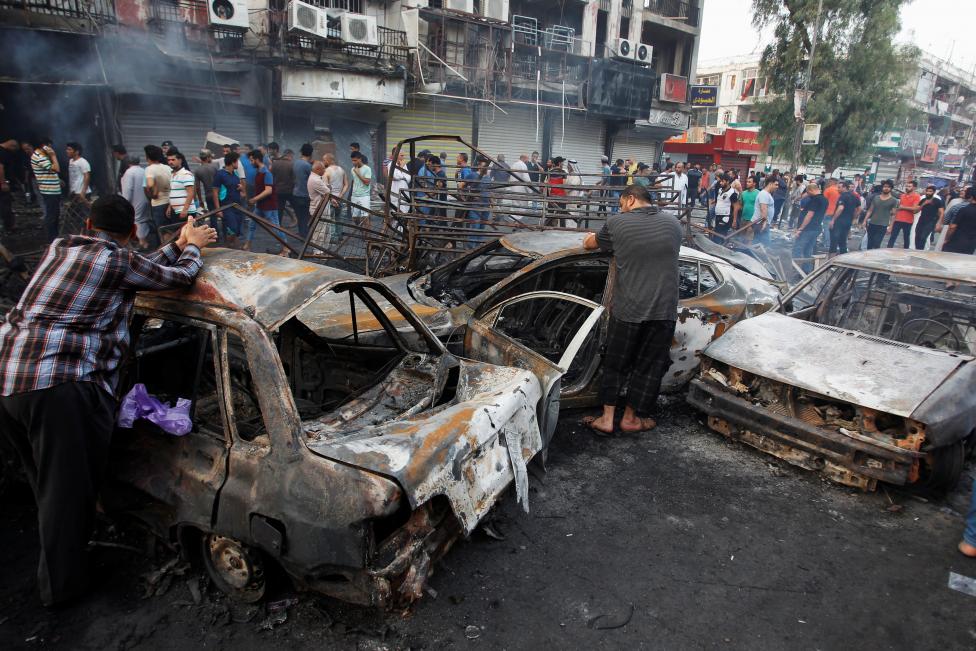Baghdad- The Fiqh Council of Iraq (al-Majma al Faqahi al-Iraqi), the highest Sunni authority in Iraq, denounced the blast that targeted the Shi’ite district of Kadhimiya.
ISIS claimed responsibility for the blast that resulted in 27 casualties. Amaq, a news agency that supports the terrorist group, said a suicide bomber wearing an explosive vest had targeted security forces at the entrance to the Khadimiya neighborhood.
The council, in a statement, expressed deep sorrow for this painful incident and called “the Iraqi government and responsible security bodies to reveal the circumstances of this terrorist attack and to refer committers to justice”.
Iraqi Parliament Speaker Salim al-Jabouri has urged political parties to “be united to face the threats to security and country’s stability.”
In the same context, MP Fares al-Fares told Asharq Al-Awsat newspaper that these terrorist attacks are a reaction to ISIS’ failure to defeat the Iraqi militarily. “ISIS has been defeated in Fallujah, Ramadi, and most of Anbar province,” he said.
“This group resorts to easy targets such as markets, coffee shops, stores and public squares as a compensation for its defeat in battles in order to cause a huge number of casualties,” added Fares.
Regarding talks about ISIS targeting Shi’ite regions only, Fares said that ISIS’ main goal is to cause sedition between Shi’ite and Sunni Iraqis.
Earlier, MP Awatef Nemah described the blast as a Shi’ite genocide and wondered why only Shi’ite regions are being targeted.
Meanwhile, a high-ranking security officer told Asharq Al-Awsat newspaper that the national security system is flawed. It has failed to fulfill its duty for a number of reasons including the absence of qualifications and overlapping missions among the ministries of interior, defense and the intelligence body. “If these gaps are not tackled, the coming days will be worse,” he said.
In a related matter, the head of the Baghdad Operations Command, Major General Jalil al-Rubaie, said that tireless efforts are being exerted to maintain security in the capital but “we need more time to achieve it.”
